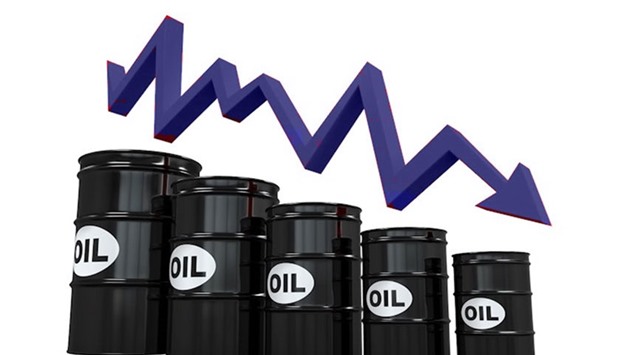World oil prices briefly sank by two dollars on Thursday after OPEC kingpin Saudi Arabia appeared to rule out deep production cuts at a meeting of the cartel.
Crude futures later clawed back ground as traders awaited the conclusion of the latest gathering of the Organization of the Petroleum Exporting Countries (OPEC) in Vienna.
Saudi Arabia expects the likely extension of the current deal cutting output to ease the global crude glut sufficiently by early 2018, Riyadh's oil minister Khalid al-Falih indicated.
‘Today's trade will likely be dominated by the outcome of the latest OPEC meeting, with members convening in Vienna to discuss the organisation's production strategy,’ said analyst David Cheetham at brokerage XTB.
‘Comments from the Saudi oil minister that a nine-month extension is the 'safe bet', and that deeper cuts were not necessary, caused a near panic reaction this morning with Brent oil dropping almost $2 in the minutes that followed,’ the expert said.
‘The price has recovered somewhat since then, but the decline is an early indication as to how high expectations are at present in the market,’ Cheetham continued.
‘Should an extension be deemed insufficient to support the oil price, then the outlook could become quite grim (for prices) going forward,’ he added.
OPEC, which pumps about one third of the world's crude, uses oil production as a tool to support price levels and thus protect precious revenues of its 13 members.
Late last year, 24 countries -- including OPEC nations and Russia -- agreed to cut production by 1.8 million barrels per day in order to reduce global oil inventories to the five-year average, curbing the stubborn supply glut.
This has helped oil prices surge from a low of $26 barrel in early 2016 to around $50 now, and the producers were expected to agree a nine-month extension later Thursday.
In afternoon deals, Brent North Sea crude for July delivery stood at $53.54, down 42 cents from Wednesday's close.
New York's main contract, West Texas Intermediate (WTI) crude for delivery in July, shed 46 cents to $50.90 a barrel.
- Equities mixed -
Elsewhere on Thursday, Europe's main stock markets diverged, after gains across Asia, where traders welcomed indications from the Federal Reserve that US interest rates could rise next month.
London's FTSE 100 shares index slipped 0.07 percent, with sentiment hit by a revision of Britain's first-quarter economic growth to 0.2 percent from an initial estimate of 0.3 percent.
Wall Street opened higher after having scored Wednesday a fifth-straight day of gains, with the S&P 500 hitting another record.
Trading had been animated by the minutes from the Fed's May policy meeting, which showed board members thought that if jobs growth remains healthy with a rebound in investment and consumer spending then rates could rise ‘soon’, which many took to mean June.
While the economy has shown some signs of weakness, the bank still thinks its broad strength would justify winding down its balance sheet, essentially sucking cash out of the system and putting upward pressure on borrowing costs.



